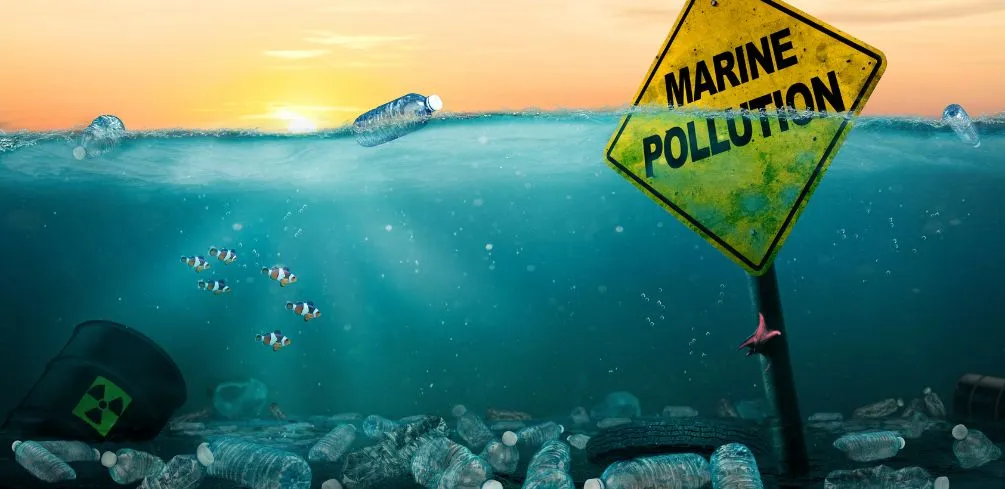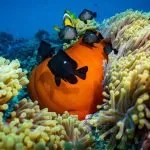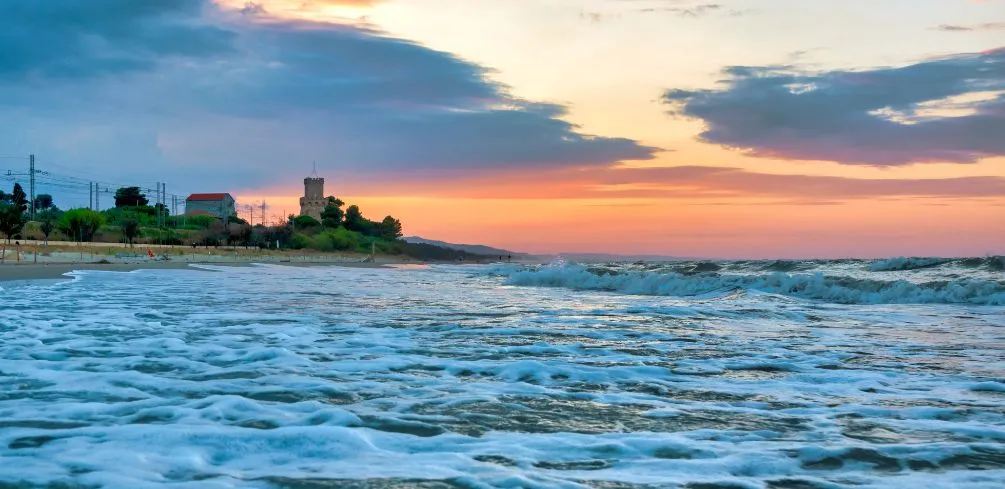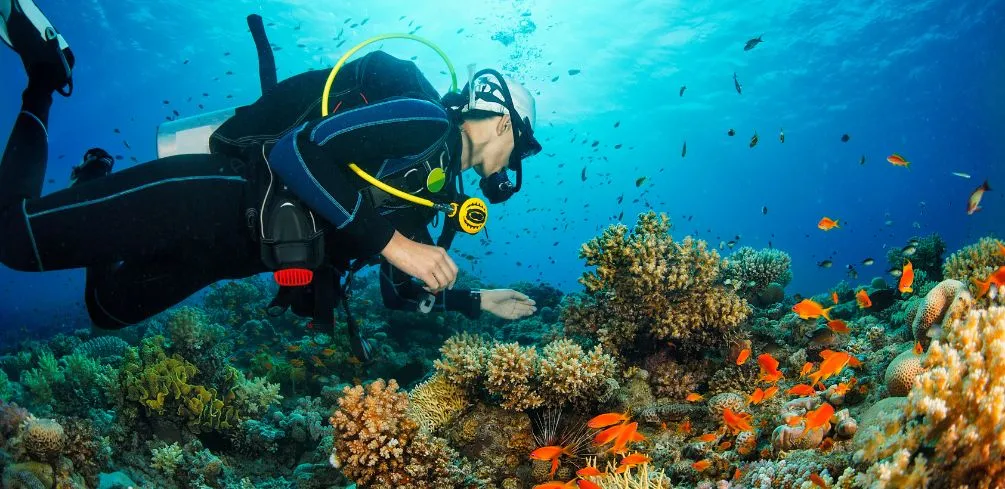Marine ecosystems are incredibly important to our planet, allowing us to survive by providing us with oxygen and food. Unfortunately, these delicate habitats are being threatened by human-caused pollution. From oil spills to plastic bags in the ocean, we need to start understanding the effects of pollution on marine ecosystems if we want to preserve them for future generations.
It’s easy to think that pollution is causing mass destruction, but what exactly does it mean for marine life? How does it affect their behavior and health? What can be done about it? These are all questions that need answering if we want to make a real change.
In this article, I will delve deep into the effects of pollution on marine ecosystems and provide you with a better understanding of how we can work together toward preventing further damage. With an open mind and a desire for knowledge, let’s explore how marine life is affected by our actions.
Meaning Of Pollution
Pollution is a broad term used to describe the introduction of contaminants into an environment. It can take many forms, including air, water, and noise pollution. Marine pollution specifically refers to the contamination of the ocean and its ecosystems by humans. This can occur through a variety of activities, such as oil spills, chemical runoff, plastic debris, and noise pollution.
Air pollution is caused by the emission of harmful fumes or particles into the atmosphere. These pollutants are typically released from industrial processes and car exhausts, leading to smog and acid rain.
Water pollution occurs when toxic substances enter bodies of water, including rivers, lakes, and oceans. This can be caused by sewage disposal or chemical runoff from agricultural activities. Noise pollution is characterized by loud sounds that disrupt the environment and lead to hearing loss in animals and humans alike.
The effects of these pollutants on marine ecosystems can be devastating for both wildlife and humans alike. By understanding what constitutes different types of pollution, we can learn how to limit our impact on the environment and protect our planet’s fragile marine habitats.
Sources Of Pollution In Marine Ecosystems
Pouring pollutants into our planet’s precious waters, and polluting the waterways and oceans with dangerous toxins, is an ongoing issue that has been heavily damaging marine ecosystems for generations. We must take a closer look at the sources of this contamination in order to identify solutions.
The first source of waterway pollution is sewage contamination. Sewage waste from sewage treatment plants, septic tanks, stormwater runoff, leaking fire hydrants, and illegal dumping are all contributors to this type of pollution. The accumulation of these contaminants can cause serious health problems for humans as well as wildlife inhabiting the affected areas.
Another source is agricultural runoff which contains pesticides, herbicides, and fertilizer that enters our waterways through rainwater runoff or irrigation systems. These pollutants not only contaminate the water but also cause toxic algae blooms which can then lead to fish kills and the death of other aquatic species.
Finally, chemical pollution from industrial activities such as oil spills and offshore drilling operations has had a devastating effect on marine ecosystems. This type of pollution can be extremely difficult to clean up due to its high toxicity levels and persistence in the environment. It is important that we work together to find ways to reduce these types of activities in order to protect our ocean’s delicate balance.
We must take action now if we want to ensure that future generations can enjoy the beauty and bounty of our planet’s aquatic life without fear of contamination or destruction due to human activity. Through understanding the sources of marine pollution, we can work together towards preserving our world’s oceans for years to come.
Impact On Marine Life
The impact of pollution on marine life is extensive and has a major effect on ocean ecosystems. Pollution can take many forms, including oil spills, agricultural runoff, and sewage disposal. These pollutants contaminate the water and can be detrimental to animal habitats. As a result, many species are facing extinction due to their inability to cope with the changes in their environment.
Fish and other aquatic animals are especially susceptible to the effects of pollution because they rely on clean water for survival. They must swim through contaminated water which can cause skin irritation, eye infections, and other health problems. Additionally, toxic chemicals from polluted water can build up in the bodies of fish which can lead to reproductive issues or even death.
Pollution also affects other marine creatures, such as birds, mammals, and invertebrates, that depend on clean ocean environments for food and shelter. Many species have difficulty finding adequate sources of food due to the contamination of their natural habitat. In addition, plastic debris left behind by humans poses a serious threat to these animals as it clogs waterways and often entangles them in its web-like structure.
Clearly, pollution has severe consequences for all aspects of marine life and ocean ecosystems. It is essential that we take steps to reduce our environmental impact by properly disposing of waste materials and reducing our reliance on fossil fuels so that future generations may enjoy the beauty of our oceans without fear of contamination or destruction.
Solutions To Reduce Pollution In Waterways
The pollution of our waterways has been a growing problem for decades. We must take drastic measures to reduce the amount of pollution in our water and protect our marine ecosystems! Instead of simply ignoring the problem, let’s explore some solutions that can help us reduce waterway pollution and make a difference.
Here are three strategies we can use to reduce waterway pollution:
- Reduce consumption — this is probably one of the easiest ways to start reducing waterway pollution. We can limit our consumption of products that have an environmental impact, such as plastic bags and straws.
- Invest in waste management — investing in better waste management systems can go a long way toward reducing waterway pollution. By investing in things like advanced wastewater treatment plants and better recycling systems, we can drastically reduce the number of pollutants entering our waterways.
- Adopt marine pollution control laws — governments should enact strict laws to regulate industrial activities near bodies of water and ensure that any pollutants released into the environment are properly treated or disposed of.
These are just three strategies that we can use to reduce waterway pollution, but there are many more out there. We all need to do our part to prevent further damage to marine ecosystems, so let’s get started today! Let’s put these solutions into action and show Mother Nature how much we care about her!
Long-Term Effects Of Pollution On The Marine Environment
The effects of pollution on marine ecosystems can be devastating and long-lasting. The impact of water, air, and land pollution has caused irreparable damage to the ocean environment, resulting in a wide range of negative impacts on animal health, food sources, and habitats.
Marine pollution is a huge problem that needs to be addressed now if we want to prevent further destruction to our oceans. Water pollution from agricultural runoff, sewage spills, industrial waste, and oil spills are some of the most common sources of marine pollution.
Ocean pollution affects not only fish and other wildlife but also the entire marine ecosystem. It can cause death or illness for animals due to the ingestion of toxins or contact with contaminated water.
The consequences for human health are also serious. Pollutants such as heavy metals and pesticides can accumulate in seafood and become part of our food chain.
In addition, pollutants such as plastic debris can cause physical injury or entanglement to animals that ingest them accidentally. Furthermore, contaminated water can lead to skin irritation or other health problems when people come into contact with it while swimming or fishing in polluted waters.
In order to protect our oceans from further harm, it is essential that governments take action to reduce marine pollution levels by enforcing strict laws and regulations that limit the number of pollutants entering our waterways.
We must also work together to find ways to reduce plastic waste production and increase public awareness about the importance of protecting our oceans from further destruction. We owe it to ourselves, future generations, and all creatures living in the seas!
Frequently Asked Questions
What Are The Most Common Types Of Pollution Found In Marine Ecosystems?
When it comes to pollution, there are several different types that can affect marine ecosystems. From water pollution and land pollution to chemical pollution and air pollution, these pollutants often have a negative impact on the environment. Let’s take a closer look at the most common types of pollution found in marine ecosystems:
Water Pollution:
- Oil spills
- Contamination from agricultural runoff
- Sewage discharge
Land Pollution:
- The trash from land-based sources
- Pesticides and herbicides used in farming
- Deforestation
Chemical Pollution:
- Discharge from industrial plants
- Toxic materials released into waterways
- Heavy metals such as lead, mercury, and arsenic
Air pollution is another major source of contamination for marine ecosystems. This type of pollution can come from both natural and human activities, including burning fossil fuels, vehicle exhaust, and wildfires.
All of these pollutants can make their way into the ocean and cause long-term damage to marine life. In addition to damaging habitats, polluted air can also affect human health by increasing the risk of respiratory diseases.
Ultimately, all forms of pollution have an adverse effect on our oceans. The accumulation of pollutants can disrupt food chains and upset delicate balances within marine ecosystems. It is essential that we take steps to reduce our environmental footprint by limiting our output of harmful pollutants. Doing so will ensure that future generations can continue to enjoy the beauty and bounty of our planet’s oceans.
How Can I Help Reduce Pollution In Waterways?
I’m sure we’ve all seen the devastating effects of pollution on our waterways and marine ecosystems. It’s heartbreaking to see how much damage we’ve done to our planet and its inhabitants. But the good news is that there are steps that each of us can take to help reduce pollution in waterways.
Here are some ways that you can make an impact:
- Waterway Cleanups: Participating in local waterway cleanups is a great way to help reduce plastic and other pollutants from entering our oceans.
- Join an existing organization: You can join an existing cleanup crew or start your own!
- Plan ahead: Make sure you have the necessary supplies and safety gear before heading out.
- Reduce Plastic Usage: Reducing your plastic usage is one of the easiest ways to help protect our oceans.
- Reusable bags: Invest in reusable shopping bags for grocery trips, so you’re not contributing more plastic waste into landfills and waterways.
- Refillable containers: Consider carrying a refillable water bottle or coffee cup when you’re out and about instead of relying on single-use plastics.
- Reduce Chemical Runoff: Pollution from chemical runoff is a major contributor to ocean pollution, so it’s important to do what we can to reduce it.
- Sustainable farming practices: Supporting sustainable farming practices helps keep chemicals out of waterways.
- Oil spill prevention: Educating yourself on oil spill prevention methods will help keep our oceans healthy for generations to come.
These are just a few ways that we can all make a difference when it comes to reducing pollution in our waterways and marine ecosystems. By taking small steps every day, we can do our part in protecting our planet for future generations.
What Are The Immediate And Long-Term Effects Of Pollution On Marine Life?
I’m sure you’ve heard of marine pollution, but do you know the effects it has on marine life? Pollution in waterways not only affects the ecosystems but also has immediate and long-term impacts on aquatic creatures. This article will discuss how pollutants impact marine life and what we can do to reduce water pollution.
A pollutant is any substance that contaminates the environment, and many of them have severe consequences for aquatic species. These pollutants range from plastics to chemicals released from factories, and they create an imbalance in the marine ecosystem.
For example, nutrient runoff from fertilizers can cause algal blooms, which deplete oxygen levels in the water, leading to fish kills. Furthermore, chemicals like DDT can accumulate in fatty tissues of fish and other organisms, resulting in serious health issues such as cancer or reproductive problems.
The good news is that there are steps each of us can take to reduce water pollution. We can start by disposing of garbage properly and reducing our use of single-use plastic products like straws or grocery bags.
Additionally, we should be mindful of what we put down our drains as various household products like paint or motor oil contain harmful chemicals that end up in waterways. Finally, investing in green technologies such as solar energy helps eliminate the emissions of toxic pollutants into the atmosphere.
All these efforts will help protect marine life from further damage caused by pollution while also preserving our precious aquatic ecosystems. It’s critical that we act now if we want future generations to enjoy a healthy ocean environment – let’s work together to reduce water pollution!
How Does Plastic Pollution Impact Marine Life?
We are all aware of the devastating effects that plastic pollution is having on our planet and its wildlife, but what about its impact on marine life? It’s no secret that plastic pollution is one of the biggest threats to our marine ecosystems.
Not only does it choke and entangle animals, but it also pollutes their habitats with harmful chemicals. The consequences for marine life can be both immediate and long-term, making this a serious issue requiring urgent attention.
Plastic waste has been found in every ocean in the world, from tiny microplastics to large pieces of packaging. This has a direct effect on the lives of many species of marine life that rely on these fragile ecosystems for survival. Fish, turtles, seabirds, and other aquatic creatures can become entangled in plastic debris or mistake it for food.
Ingesting plastic can lead to malnutrition or blockage of the digestive tract which can cause death. Additionally, plastics release toxins into the environment, which can be absorbed by fish and shellfish, eventually entering the food chain – posing a threat to human health too!
The impact of plastic pollution has been felt across many levels of marine life. From disrupting entire populations due to habitat destruction to poisoning individual creatures through ingestion, it’s clear that this is an issue that requires urgent action. We must all do what we can to reduce our consumption of single-use plastics and encourage others to do the same if we are going to protect marine life from this devastating form of pollution.
What Are The Potential Health Risks Associated With Marine Pollution?
It’s no secret that marine pollution is a growing global problem. The potential health risks associated with this form of pollution are concerning, as it can have long-lasting effects on both marine life and humans. Marine ecosystem pollution can come from a variety of sources, including oil spills, industrial runoff, and plastic waste.
While the impacts of waterway pollution on health may vary depending on the amount of exposure and an individual’s own risk factors, there are some general risks that everyone should be aware of.
One of the most well-known impacts of marine life pollution is the release of chemicals into the water. These chemicals can cause harm to humans who swim in or drink contaminated water, as well as those who consume contaminated seafood.
In addition to this, the accumulation of plastic debris in waterways can lead to physical injuries for both people and animals who come into contact with it. Furthermore, marine life may suffer from habitat loss if pollutants make their environment uninhabitable or reduce food sources available to them.
The effects of marine pollution don’t stop there; air quality near polluted water bodies may also be degraded due to toxins released into the atmosphere by pollutants.
Additionally, these toxins can accumulate in fish tissue over time and eventually end up on our dinner plates when we eat them. It’s clear that marine pollution has far-reaching implications for human health and safety, so it’s important to take action now before more damage is done.
It is essential that governments worldwide work together to reduce pollutants entering our oceans and waterways in order to create healthier environments for both people and wildlife alike – because when it comes down to it, we all depend on healthy oceans for our survival!
Conclusion
We’ve seen how pollution can have a devastating effect on marine ecosystems. From plastic waste to chemical runoff, it’s clear that pollution is a major threat to the health of our oceans and waterways. But there is hope! We all have the power to reduce the amount of pollution entering our waters.
For instance, I recently read about a group of volunteers who collected over 10 tons of plastic debris from an ocean beach in just one day! That’s an incredible example of how individuals can make a real difference in tackling ocean pollution. By taking small steps — like using reusable water bottles and shopping bags — we can all help reduce plastic waste entering our marine ecosystems.
We also need to be aware of the potential health risks associated with marine pollution, including exposure to toxins and heavy metals. The good news is that by reducing our own consumption and encouraging others to do the same, we can help protect both ourselves and future generations who will benefit from healthy, vibrant oceans and waterways.





